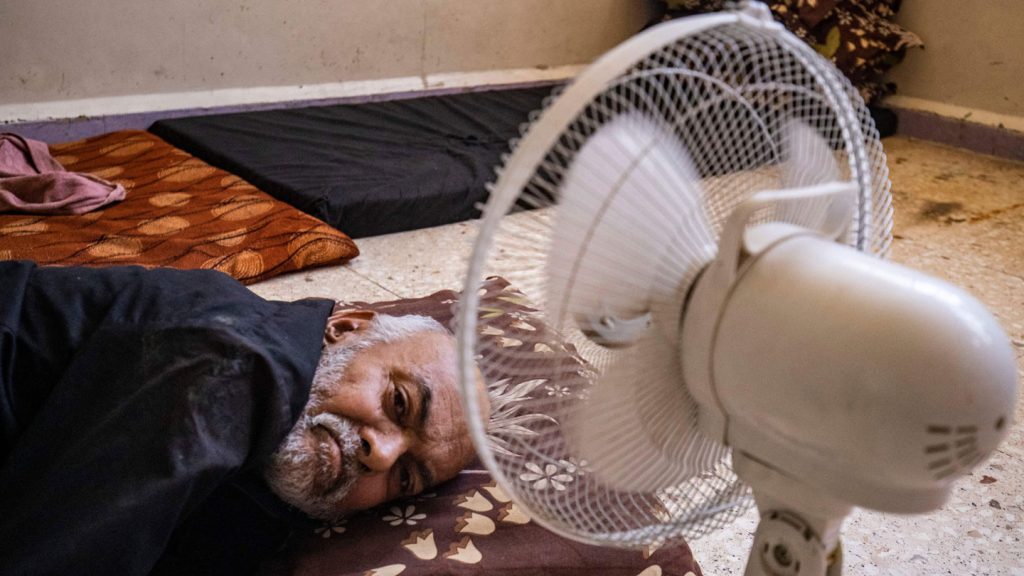A new study published in the Journal of the American Medical Association found that older adults may not experience significant cooling effects from electric fans alone during extreme heat wave conditions. Many older adults prefer to stay at home during heat waves and use pedestal-style electric fans as a cooling strategy in the absence of air conditioning. Fans work by increasing sweat evaporation, thus speeding up heat loss and lowering the body’s core temperature.
Environmental physiologist Fergus O’Connor and his team conducted a study to directly test the effectiveness of fans during heat wave conditions. Participants aged 65 to 72 spent three eight-hour sessions in a climate-controlled chamber at 36°C (96.8°F) and 45% relative humidity, similar to the extreme heat experienced during a heat dome event in Vancouver. The chamber was equipped with an electric fan, and researchers tested three levels of fan speed: no airflow, slow airflow of 2 meters per second, and fast airflow of 4 meters per second.
The study evaluated the participants’ body core temperature, cardiovascular strain, dehydration level, and thermal comfort during each exposure period. The results indicated that compared to no fan airflow, the slower airflow did not lead to a significant change in core temperature, blood pressure, fluid consumption, or thermal comfort. The faster airflow improved thermal comfort perception, but there was no significant improvement in the participants’ physiological responses.
Previous biophysical models had suggested that fans may not provide much cooling beyond an ambient temperature of 33°C (91°F), especially for older adults who may have reduced sweat efficiency. The researchers noted that these models assumed a powerful airflow that exceeded the capabilities of many standard home fans. This study’s findings shed light on the limitations of using electric fans alone to cool off older adults during extreme heat waves and stress the importance of additional cooling strategies for this vulnerable population.
The research underscores the importance of implementing effective cooling interventions for older adults during heat waves, considering the potential health risks associated with extreme heat events. Fans may not be sufficient as a standalone cooling method for older adults, and additional measures such as air conditioning, hydration, and proper ventilation should be considered to protect vulnerable individuals. Further research and public health initiatives are needed to address the health impacts of extreme heat on older adults and develop holistic strategies to mitigate these risks.


